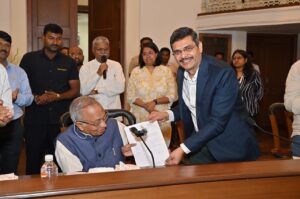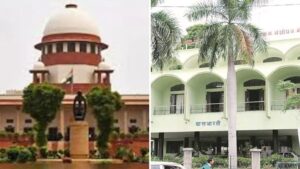“Speak Local or Leave?” Startup Founder Sparks Debate Over Language Politics in India

"Speak Local or Leave?" Startup Founder Sparks Debate Over Language Politics in India
Amid growing tensions over the use of regional languages in Indian metro cities, a startup founder has stirred conversation with a striking suggestion — consider moving abroad to places like Dubai or Singapore, where language is not used as a litmus test for belonging.
Akshat Shrivastava, a well-known entrepreneur and content creator, took to social media platform X to weigh in on the recent flare-up of linguistic tensions in Maharashtra and Karnataka. His comments came in response to multiple reports of individuals being harassed for not speaking the local language in cities like Mumbai and Bengaluru.
“Folks: just move to Dubai or Singapore. No one expects you to learn [the] local language. It is a plus, if you know — but you would NOT be thrashed by goons if you don’t. Just follow the law. Be a good resident. Add to their economy. And, get good facilities in return. Better future for your kids. And, good career opportunities. Live and let live,” Shrivastava wrote.
Folks: just move to Dubai or Singapore. No one expects you to learn local language.
— Akshat Shrivastava (@Akshat_World) July 7, 2025
It is a plus, if you know– but you would NOT be thrashed by goons if you don't.
Just follow the law. Be a good resident.
Add to their economy.
And, get good facilities in return.
Better… https://t.co/ICKedeQidH
His remarks follow an incident in Mumbai where workers from the Maharashtra Navnirman Sena (MNS) physically assaulted a shopkeeper for not conversing in Marathi. In a separate case, party members reportedly vandalized an office in Worli after its owner publicly criticized MNS leader Raj Thackeray and stated he had no intention of learning Marathi.
The party, known for its aggressive pro-Marathi stance, hasn’t backed down. At a recent rally, Raj Thackeray reiterated his demand that non-Marathis living in the state should make an effort to learn the language, although he added a caveat:
“Be it Gujarati or anyone else, they must know Marathi. But there is no need to beat people for not speaking Marathi. [However] if someone creates unnecessary drama, you must hit below their eardrums,” he said — while instructing supporters not to film such actions.
MNS Mumbai unit chief Sandeep Deshpande later defended the recent assaults, claiming, “If there is an attempt to insult Marathi, we will respond. It will not be tolerated.”
In support, Shiv Sena (UBT) leader Uddhav Thackeray also stood by the party line, emphasizing, “Yes, we are goons if we have to do hooliganism for justice… If a Marathi manus is asking for justice, and if you are calling us goons — yes, we are goons; if we have to be goons to get justice, we will do goondagiri.”
Not everyone agrees with the party’s methods — or its message. Voices from civil society and academia have pushed back against what they see as an increasingly hostile environment for non-native speakers.
Associate professor Gaurav Sabnis weighed in, saying, “No one in Maharashtra expects visitors to speak Marathi. But if you make Maharashtra your home, we expect you to at least try to speak Marathi. Same in Bangalore. Refusing to even try to speak Kannada is both lazy and disrespectful.”
However, ground reports suggest a more nuanced picture. One social media user named Prayag shared his experience in Mumbai, countering the narrative of linguistic hostility: “Met so many Marathis today, no one talked to me in Marathi after knowing I’m not from Maharashtra, no one abused, no one forced anything… One cab wale bhaiya said, ‘Arey ye sab netaon ki rajneeti hai bas.’ So this is the ground reality.”
India’s linguistic diversity is one of its greatest strengths — but it often becomes a flashpoint in the debate around identity and inclusion. While learning the local language is undeniably valuable for community integration, the use of violence or intimidation to enforce cultural norms only serves to widen social rifts.












